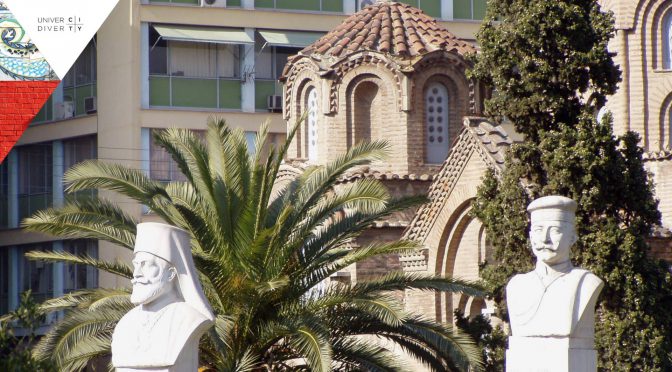In the frame of FF UK Divesity week, the Institute of World History and its partners are organizing a workshop on “Identity Strategies: Heritage and Diversity”
Where: Hybernská 3, Prague 1 (room 303)
What do cultural patrimony, identity and diversity share in common? This question will be tackled during the workshop:
What strategies are in question when speaking about the choice and presentation of UNESCO monuments? Linda Kovářová, who compares the UNESCO monuments in the Czech Republic, Italy and Japan, will speak about this topic more in detail.
Aurore Navarro in her presentation about her research concerning retailers of so-called quality food in Prague is going to persuade us that identities go through our stomach: the food divides and unifies, delimits and designates.
Why the rich breton culture and tradition didn’t become the base for confident regional patriotism? Did the elites of Brittany choose a wrong strategy? Martina Reiterová is going to look for an answer to this question.
Alena Křivánková is going to reveal us who was interested in occitan at the beginning of the French Revolution and why this language didn’t become a link for southern French identity.
Jan Krajíček is going to present us technocratic dreams of František Radouš dating the 1930s, one of those being the idea that an underdeveloped and peripheral region like the Vysočina region constitute an ideal place for modernisation strategies.
Come and join us at this collective brainstorming!
In case you have other ideas, we would like to listen to them in the workshop.
Program
Linda KOVÁŘOVÁ (FF UK) UNESCO a koncept diverzity na příkladě Kutné Hory, Hirošimy a Villa Romana di Casale
Aurore NAVARRO (CEFRES/Université de Lyon) Food quality and retail trade in Prague: heritage, reinvention and innovation.
Martina REITEROVÁ (FF UK): Problematické dědictví? Identifikační strategie bretonských regionalistů přelomu 19. a 20. století.
Alena KŘIVÁNKOVÁ (FF UK): „Okcitánština“ – počátky vědeckého zájmu a sporů o jeden (?) jazyk
Martin THARP (FHS UK): Thomasius’ Legacy or the Language Paradox of European Universities
Jakub NEUMANN (FF UK): Proměny kladenské industriální krajiny ve 20. století
Jan KRAJÍČEK (FF UK): Periferní region jako technologický projekt: modernizace Vysočiny podle Františka Radouše (1939)
See the complete program with abstracts (in Czech) here.

